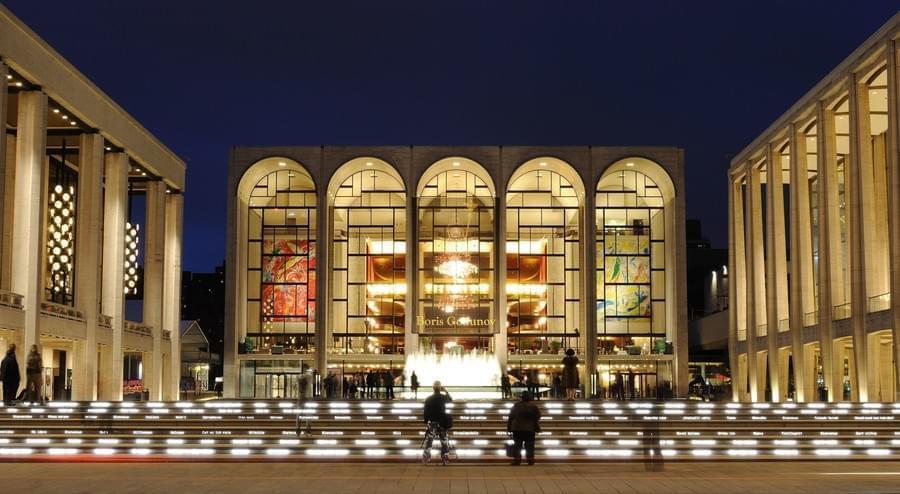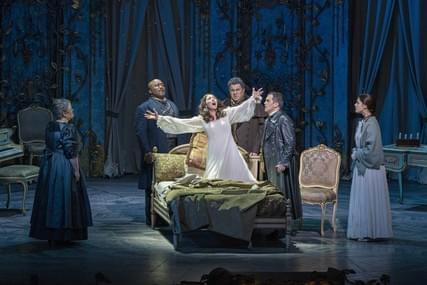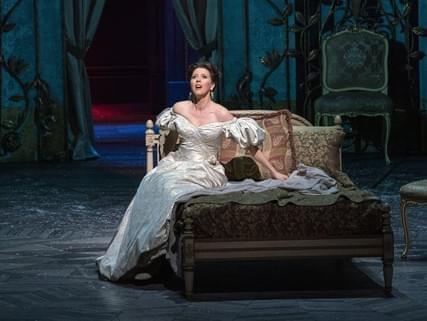La traviata
Music by
Giuseppe Verdi
Cast
| Violetta Valery | Lisette Oropesa | |
| Alfredo Germont | Piero Pretti | |
| Giorgio Germont | Luca Salsi | |
| Flora Bervoix | Sarah Larson | |
| Annina | Maria Zifchack | |
| Gastone | Brian Michael Moore | |
| Baron Douphol | Dwayne Croft | |
| Marchese D’Obigny | Jeongcheol Cha | |
| Doctor Grenvil | Kevin Short | |
| Giuseppe | Patrick Miller | |
| Messenger | Ross Benoliel | |
| Germont's Daughter | Kendall Cafaro |
Michael Mayer
Set DesignerChristine Jones
CostumesSusan Hilferty
ChoreographyLorin Latarro
LightingKevin Adams
About
Michael Mayer’s sumptuous staging, a highlight of the 2018–19 season, returns with two casts of bright stars. Sopranos Aleksandra Kurzak and Lisette Oropesa share the role of Violetta, the opera’s tragic heroine, opposite tenors Dmytro Popov and Vittorio Grigolo as her ardent lover, Alfredo, and baritones Quinn Kelsey and Luca Salsi as Alfredo’s stern father, Germont. Karel Mark Chichon and Bertrand de Billy conduct one of opera’s greatest scores.
Production a gift of The Paiko Foundation
Major additional funding from Mercedes T. Bass, Mr. and Mrs. Paul M. Montrone, and Rolex
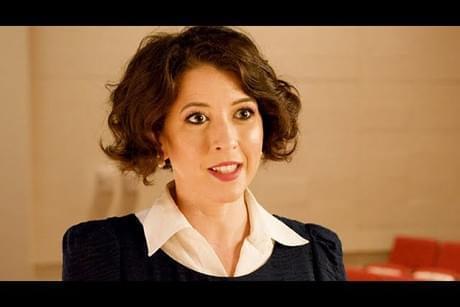
Interview - Living the Classical Life
Lisette is interviewed on Living the Classical Life
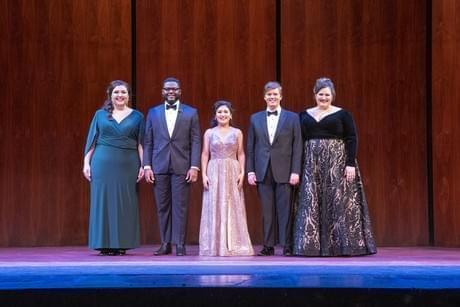
Lisette Oropesa donates $25,000 to the Metropolitan Opera National Council
Lisette presented this year's MONC finals and contributed to the first increase in prize money since 1998.
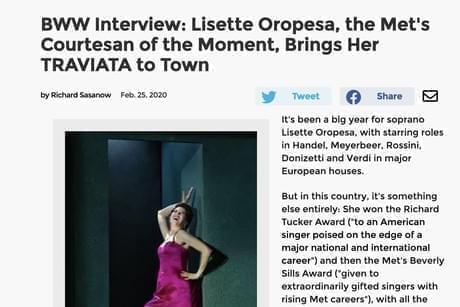
Lisette is interviewed in Broadway World
Lisette is interviewed in Broadway World
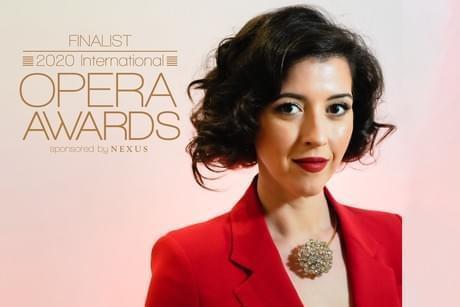
International Opera Awards, Nominated
Lisette is nominated for best female singer for the 2020 International Opera Awards
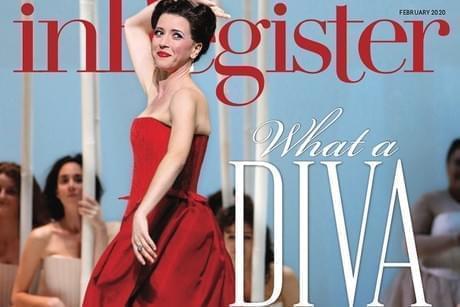
Lisette Oropesa on the cover of InRegister Magazine
Lisette Oropesa on the cover of InRegister Magazine for February 2020
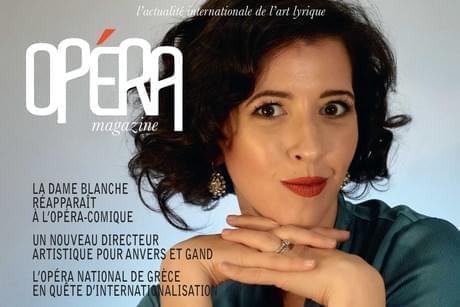
Cover of Opéra Magazine, February 2020
Lisette is on the cover of Opéra Magazine for February 2020

❄️Lisette's Winter Newsletter
❄️Lisette's Winter Newsletter
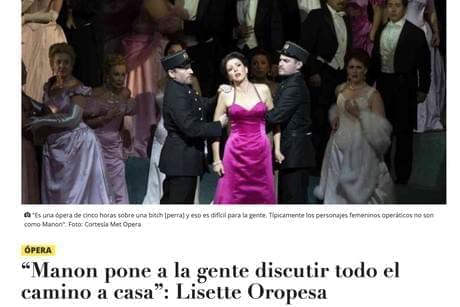
Interview - Revista Arcadia
Lisette is interviewed in Revista Arcadia for her upcoming Live in HD performance of Manon at the Metropolitan Opera
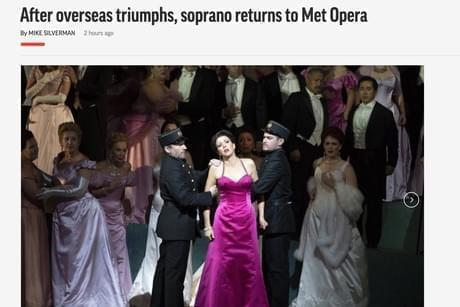
After overseas triumphs, soprano returns to Met Opera
Lisette is interviewed in the Associated Press
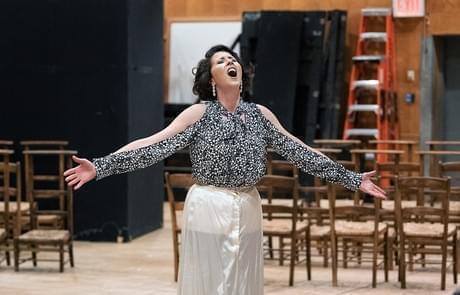
Lisette is interviewed by the Metropolitan Opera
Lisette is interviewed by the Metropolitan Opera for her upcoming performances of MANON and La Traviata

Lisette Oropesa is the winner of the 2019 Beverly Sills Award
Lisette Oropesa wins the 2019 Beverly Sills Award
Reviews
Oropesa is an unforgettable Violetta in Met’s “Traviata” revival
There’s a melancholy feeling that very occasionally accompanies the greatest performances. Tangled up in the thrill of witnessing a historic interpretation of an iconic work comes the sad realization that you may never encounter its equal. The Metropolitan Opera has seen a number of superb sopranos appear as Violetta Valéry in the past decade: Diana Damrau, Natalie Dessay, Sonya Yoncheva, and Angelina Gheorghiu are just a handful of the most recent leading artists to make a mark in La Traviata’s touchstone role. The sensational performance that Lisette Oropesa gave on Wednesday night in her role debut at the Met deserves to be counted in the very first rank. Oropesa brings a voice ideally suited to the role: direct and lively, bright yet round, so focused you can almost see it as it pierces through the air of the auditorium and slams into the back wall. Yet even with its power and laser clarity, her soprano never feels aggressive, as she wields her instrument with musical sensitivity and classic elegance.None— Eric C. Simpson • New York Classical Review
Review: Lisette Oropesa Makes ‘La Traviata’ Her Own
In Act I, when Violetta, a charming courtesan, is throwing a lavish party, a soprano must summon flights of coloratura brilliance and coquettish sparkle. Ms. Oropesa breezily dispatched runs and embellishments as she mingled with her guests and met Alfredo, the smitten young man from a bourgeois family who has been pining for her from afar.Yet you could detect a trace of forced vivacity in Ms. Oropesa’s interpretation, an intentional touch of tremulous fervor in her sound, even as she let bright-voiced, ebullient phrases soar. Here was a young woman determined to prove that she was undaunted and would remain, as she later sings, “sempre libera”: always free.None— Anthony Tommasini • New York Times
Metropolitan Opera 2019-20 Review: La Traviata (Cast B)
Lisette Oropesa, taking on the role at the Metropolitan Opera for the first time (according to her official website she had taken it on just 11 times prior to this run), is one of the few artists that can manage to pull off the role with not only the dramatic temperament, but also the vocal consistency.None— David Salazar • Opera Wire
BWW Review: A Marvelous Oropesa is Definitely Not 'Lost' in Met's TRAVIATA
She gave a stellar performance that showed a firm grip on all the facets of the role--the coloratura, the drama, the pathos, the glamour.She was the party girl of Act I, the delirious lover and compassionate figure of Act II, and the dying woman of Act III, each perfectly placed, each cannily acted. Whether she was singing the joyous "Sempre libera" at the opera's start or the woeful "Addio del passato" at the end of Act III, she was in full command of all that was demanded of her. She had good backup from the Met Orchestra, under Bertrand de Billy, with the usual stellar work of the Met Chorus, under Donald Palumbo.None— Richard Sasanow • Broadway World
Performance History
Lisette has given 51 performances as Violetta Valery.
2026
Metropolitan Opera2025
Bayerische Staatsoper
Staatsoper Unter den Linden2024
Wiener Staatsoper
Opéra National de Paris2023
Wiener Staatsoper
Teatro dell'Opera di Roma
Arena di Verona2022
Arena di Verona
Bayerische Staatsoper2021
Royal Opera House
Teatro dell'Opera di Roma2020
Gran Theatre del Liceu
Teatro Real2019
Arena di Verona
Greek National Opera2015
Opera Philadelphia

